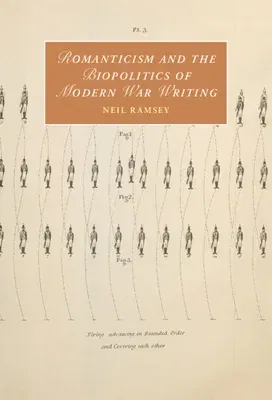Neil Ramsey
(Author)Romanticism and the Biopolitics of Modern War WritingHardcover, 24 January 2023

Qty
1
Turbo
Ships in 2 - 3 days
In Stock
Free Delivery
Cash on Delivery
15 Days
Free Returns
Secure Checkout

Part of Series
Cambridge Studies in Romanticism
Print Length
304 pages
Language
English
Publisher
Cambridge University Press
Date Published
24 Jan 2023
ISBN-10
1009100440
ISBN-13
9781009100441
Description
Product Details
Author:
Book Format:
Hardcover
Country of Origin:
US
Date Published:
24 January 2023
Dimensions:
22.86 x
15.24 x
1.75 cm
Genre:
British
ISBN-10:
1009100440
ISBN-13:
9781009100441
Language:
English
Location:
Cambridge
Pages:
304
Publisher:
Weight:
576.06 gm